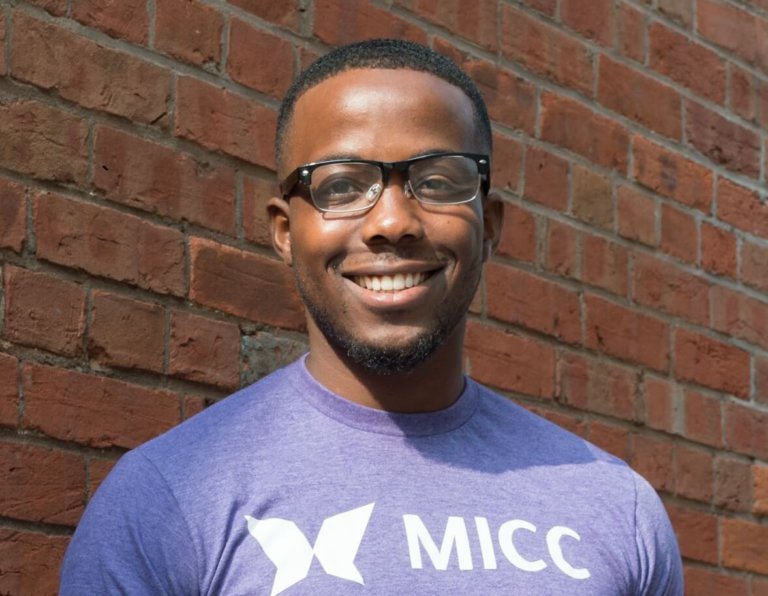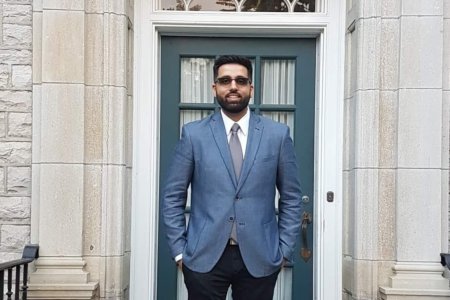
When Jonah Chininga first arrived in Prince Edward Island, Canada from Zimbabwe in 2014, he had no idea how the financial system there worked. It led to several mistakes and bad financial decisions, like taking out loans with high interests. Not wanting other international students to fall into the same traps he did, this sparked the idea to create an app to help them with debt in Canada.
In Canada, there is a high-interest rate for student loans. International students also face a high chance of not qualifying for loans from provincial or federal governments. This drives them to seek out private loans with banks, a move that can turn out to be extremely costly. What MICC Financial — an app based on the concept of rotational savings — does is pool money into a common fund between a group of individuals like close friends. Users can then take turns to access the funds when they need to.
We speak to the Accounting and Business Management graduate from the University of Prince Edward Island to find out more about the financial app, his favourite places in Canada, and his future plans:
Out of all the places in the world, what made you choose Canada?
Canada stood out for me because of the quality of education and welcoming immigration process which was important for life after university so I have a chance to develop myself. In Canada, they have an aging population, so they welcome young people. The opportunities to get permanent residence and work permits are big so that helped solidify my decision.
How different is Canada from Zimbabwe?
Coming to Canada from Zimbabwe, I saw that the systems are quite different in terms of community engagement and the financial aspect. Learning how the credit and banking system works here had me making several mistakes along the way because I wasn’t used to the financial side of it.
Was this what led you to create your financial app?
Yes, I felt like the banking system was kind of taking advantage of college students by enticing them to sign up for credit cards and so on. Once you start taking out loans, it follows you even until after you graduate and accumulates interest every step of the way.

MICC Financial, a digital app that pools money into a common fund between a group of friends to help struggling international students with debts. Source: Jonah Chininga
As an international student, you want financial security because you’re mostly dependent on your parents. You don’t really have a supporting network. The financial app came about when we were brainstorming how to create a solution to provide financial security along with financial literacy and other aids.
What did you study, and how do you think it’s helped you with your financial app?
I had the chance to attend the United Nations Youth Assembly in New York, a sort of youth leadership conference where we got to discuss the 17 Sustainable Development Goals. This is where I got to learn about groups of people doing rotational savings.
Coming from a family that was very business-oriented made me aspire to be in business my whole life. I always had a knack for solving problems for people so studying business in higher education was very helpful.
The financial app I created is a great way to pull money together to pay off student loans, and learn financial literacy. As friends we can hold each other accountable as well as help each other as a community.
How does your financial app specifically help international students in Canada?
The MICC financial app helps with high-interest fees. The cost of borrowing is very expensive and sometimes inaccessible. This becomes a vicious financial cycle that affects your mental health and well being.
This in turn would result in students taking breaks from school as they’d need to get a job to pay off the loan. I thought to myself, “How can we create a platform that helps international students build credit for each other?” The financial app will hold everyone accountable, because if you miss or default on your partner, it will affect your credit history.

MICC Financial, an app to solve the financial burdens of struggling international students. Source: Jonah Chininga
How did you and one of your business partners, Daniel Ohaegbu, meet?
Ohaegbu and I came to Canada at the same time, and we stayed in the same residence hall. We both felt excluded in terms of social life and community engagement, more so during Christmas when most students were away with their families.
We decided that we had to do something to bring people together and celebrate Christmas, and from then on we felt like we had family in each other. Overtime Entertainment was created during this period, a way for people to bring other people together.
It’s a support system with opportunities for cultural expression. Sometimes we throw parties, sometimes we organise social events, all through our university. After that, we started venturing into the start-up business — where ASDA and MICC Financial was born.
What advice do you have for international students looking to study abroad?
First and foremost, the most important thing to do is your research, based on what you want to study. Study something you’re passionate about, get internship experience — students usually make it their purpose to study abroad and bring the knowledge back home.
While that is a great purpose, I find the best things you can bring back is not only the knowledge, it’s also the connections you make through experience. If you have these things, you will be a valuable asset to any organisation. Knowledge is intangible, but relationships can sustain you for a lifetime.
Are you looking to bring knowledge back home, or make Canada your permanent home?
My initial plan was to study then go back home because coming from Zimbabwe, it’s a country that faces a lot of problems where there’s a need for more proactive leaders within the communities. However, when I arrived I found the community engagement in Canada very helpful along with how welcoming they are.
So now, I’m here in the process of building a business and getting skills. Perhaps in ten years, along my grown capacity and connections, I’ll be able to go back to Zimbabwe and help with all the challenges there. I feel like Canada has become my second home and I would like to build something in it before I do anything else.
What is one thing you miss from home, and how do you substitute in Canada?
Well, I’m a terrible cook so I do miss the food from home. There aren’t many African restaurants here in Prince Edward Island, so I resort to visiting bigger provinces in Canada to eat African food. Another thing is the weather, Canadian weather can get really cold and I do miss the warm weather from back home!
Lastly, what are your top three favourite places in Canada and why?
Montreal would be the best province to visit, it is very multicultural and one of the most diverse cities on planet Earth. Prince Edward Island is a great place if you’re a student and looking to develop yourself without many distractions — its universities offer high quality education.
The third would be Toronto because it’s a big vibrant city that’s very engaging. It’s also great for business opportunities because it has a large population of eight million people. Toronto is also a good place to go if you want to have a good time.










